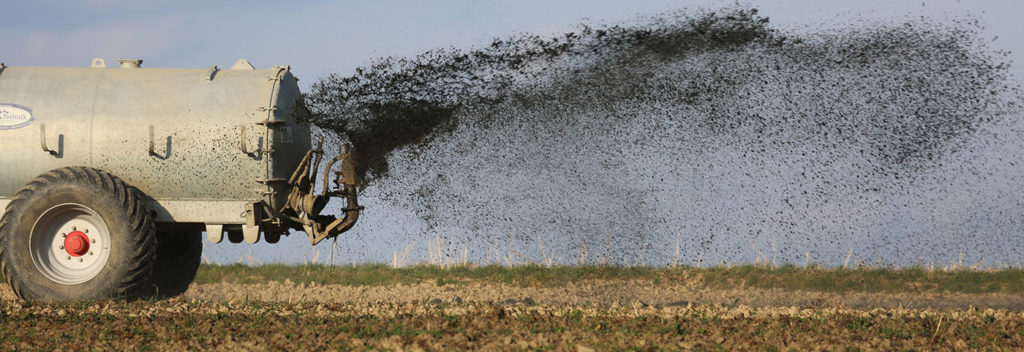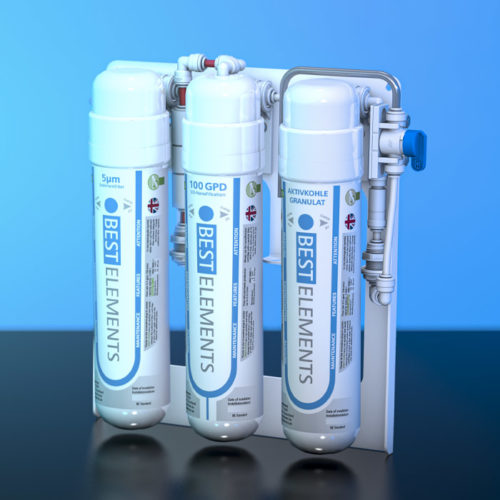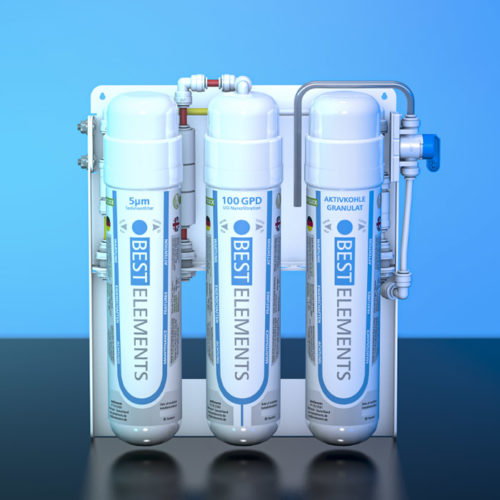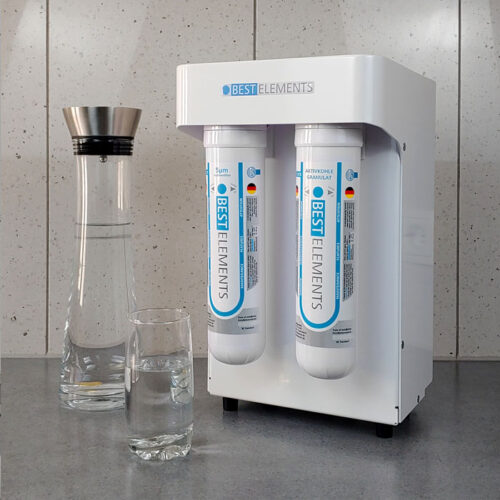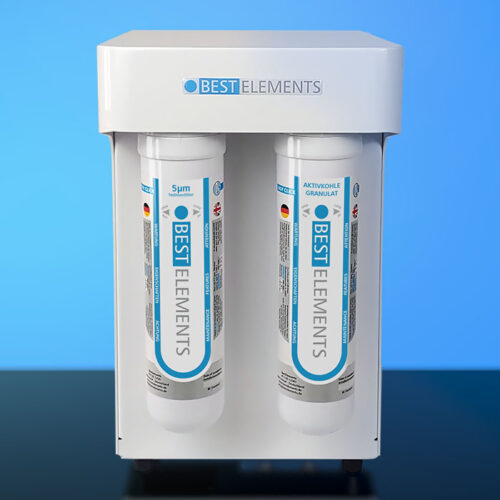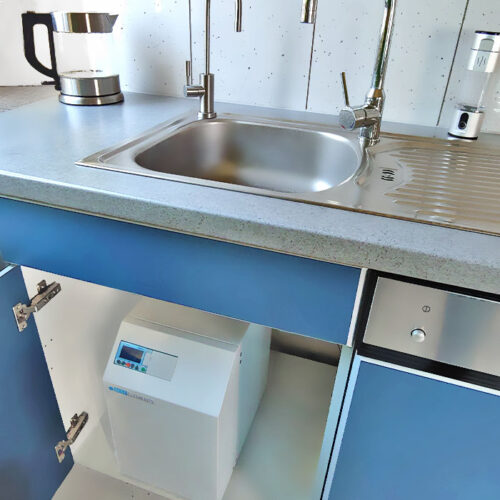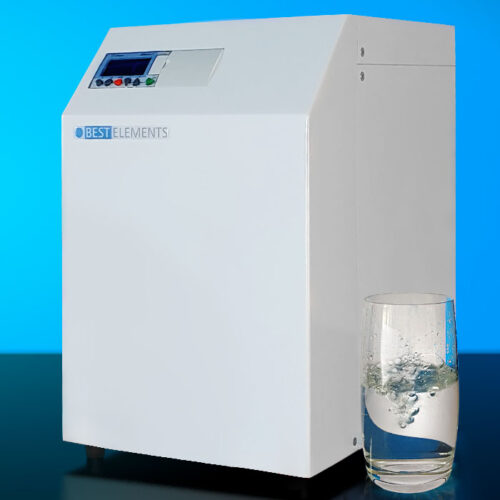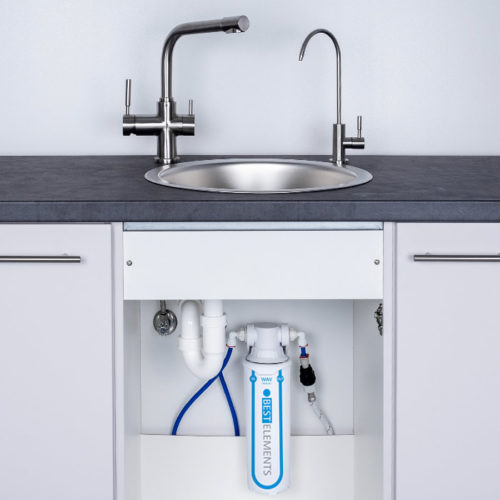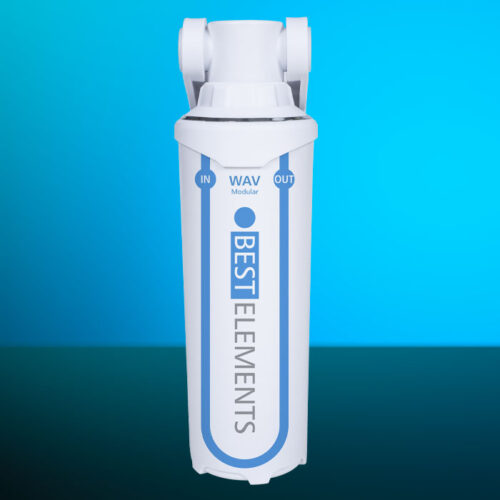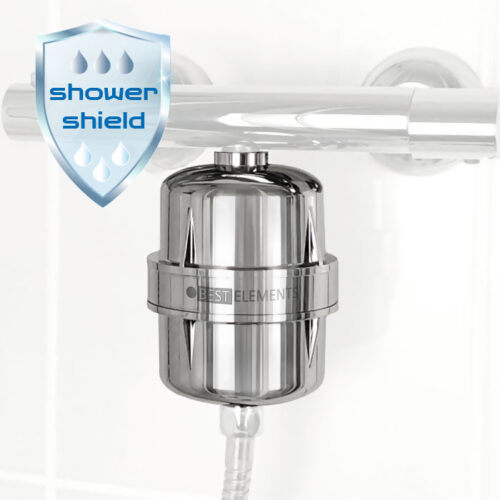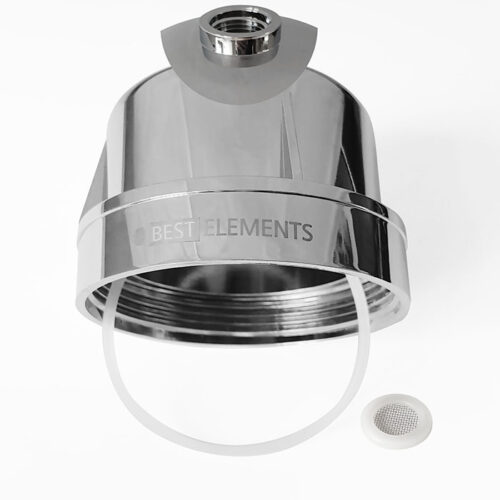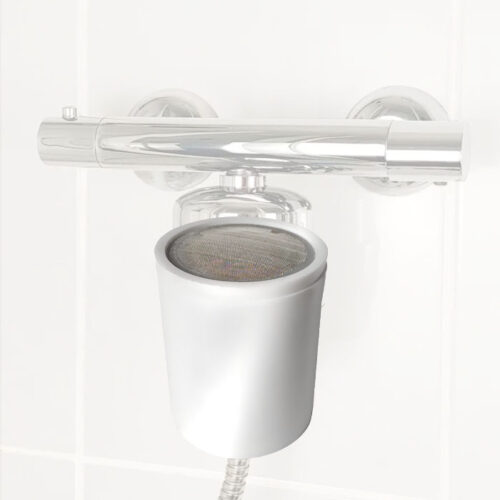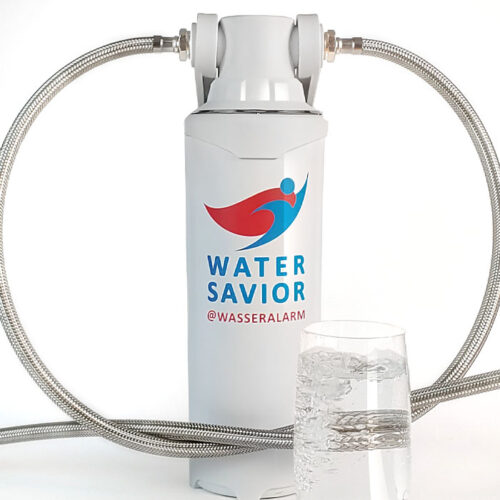Bacteria such as E. coli in drinking water: A health hazard
Bacteria, especially Escherichia coli (E. coli), can be found in drinking water and pose a serious health risk. E. coli is often an indication of fecal contamination and can cause diarrhea, abdominal cramps and, in severe cases, kidney failure. Children, the elderly and people with weakened immune systems are particularly at risk. To prevent this, strict water quality tests are carried out. Water filters can help remove E. coli from drinking water and thus reduce the risk of illness.
Industrial chemicals, heavy metals, radioactive substances… definitely things that our body does not need and that are harmful to it. “Dirt cleans the stomach” is far from true in this case. Effects such as allergies and neurodermatitis, heart/circulatory problems, infertility and others cannot be ruled out.
There are limit values for over 40 different substances and parameters. But are the test criteria defined clearly enough? Is the drinking water regulation up to date or does it even have loopholes? There are no limits for medications and their residues, nor for hormones (several times on public broadcasting)
The limits for foreign substances in our drinking water are complied with by suppliers in most cases, otherwise publications are made (see regional maps on bestestrinkwasser.de). The fundamental question, however, is how many substances are examined, how high the limits are set and how often changes are made. Germany, for example, was given a procedure by the EU Commission with the threat of legal action for non-compliance with groundwater protection.
A test for drug residues is not comprehensively carried out in drinking water analysis, nor is a test for possible viruses, and the list could go on and on. With this knowledge, you must now decide for yourself and your family what you consume as your “number one food” and whether filtering drinking water would make sense for you. We provide an overview of various options below.
Current drinking water reports
(Deutsch) Rimpar Hausen Ueckermünde Abkochgebot wegen Bakterien
Sorry, this entry is only available in Deutsch. Rimpar (Landkreis Würzburg): Abkochgebot wegen E.Coli-Bakterien im Leitungswasser In Teilen von Rimpar im Landkreis Würzburg gilt ab sofort ein Abkochgebot für Leitungswasser. Wie das Gesundheitsamt Würzburg... [open post]
(Deutsch) Landkreis Rastatt, Landau Trinkwasser wird gechlort
Sorry, this entry is only available in Deutsch. Durmersheim (Landkreis Rastatt): Trinkwasser wird vorsorglich gechlort – kein Abkochgebot erforderlich In Durmersheim im Landkreis Rastatt, nahe Karlsruhe, wird das Trinkwasser vorsorglich gechlort. Die Nutzung des... [open post]
(Deutsch) Rohrbach Landkreis Südliche Weinstraße Abkochgebot
Sorry, this entry is only available in Deutsch. Rohrbach: Herxheim bei Landau (Landkreis Südliche Weinstraße): Abkochgebot wegen Störung der Trinkwasserversorgung In der Ortsgemeinde Herxheim bei Landau im Landkreis Südliche Weinstraße gibt es eine Störung... [open post]
(Deutsch) Segeberg Dessau-Roßlau Duisburg Aalen Frankfurt/Main Trinkwasseralarm
Sorry, this entry is only available in Deutsch. Bark (Kreis Segeberg): Abkochgebot wegen Darmkeimen im Trinkwasser In der Gemeinde Bark im Kreis Segeberg sind die Bürger aufgefordert, ihr Leitungswasser vor dem Trinken oder Zähneputzen... [open post]
(Deutsch) Zweibrücken Schwangau Dresden Trinkwasser abkochen und PFAS-Probleme
Sorry, this entry is only available in Deutsch. Zweibrücken (kreisfreie Stadt): Verunreinigtes Trinkwasser – nicht trinken oder zum Kochen verwenden In der kreisfreien Stadt Zweibrücken in Rheinland-Pfalz ist das Leitungswasser aktuell verunreinigt. Wie das... [open post]
(Deutsch) Meerbusch Ziemetshausen Passau Probleme mit der Wasserqualität
Sorry, this entry is only available in Deutsch. Meerbusch (Rhein-Kreis Neuss): Wiederholt erhöhte PFAS-Konzentrationen im Trinkwasser In Meerbusch im Rhein-Kreis Neuss sind im Trinkwasser wiederholt erhöhte Konzentrationen von PFAS festgestellt worden. Die Chemikalien wurden... [open post]
(Deutsch) Wiesbaden Trinkwasser bakterielle Verunreinigung
Sorry, this entry is only available in Deutsch. Wiesbaden (Hessen): Abkochgebot für Trinkwasser wegen bakterieller Verunreinigung In Wiesbaden musste das Trinkwasser zeitweise abgekocht werden, nachdem bei einer Routinekontrolle bakterielle Verunreinigungen festgestellt wurden. Nach Angaben... [open post]
(Deutsch) Detmold Calw Main-Spessart Trinkwasserprobleme
Sorry, this entry is only available in Deutsch. Detmold (Ostwestfalen-Lippe): Abkochgebot für Trinkwasser in mehreren Ortsteilen In Detmold und mehreren Ortsteilen der Region Ostwestfalen-Lippe wurde ein sofortiges Abkochgebot für Trinkwasser verhängt. Betroffen sind die... [open post]
(Deutsch) Landkreis Günzburg Abkochgebot wegen coliformer Bakterien im Trinkwasser
Sorry, this entry is only available in Deutsch. Ziemetshausen (Landkreis Günzburg): Abkochgebot wegen coliformer Bakterien im Trinkwasser In der Marktgemeinde Ziemetshausen im Landkreis Günzburg wurde ein Abkochgebot für Trinkwasser verhängt. Grund dafür ist das... [open post]
(Deutsch) Bernkastel-Wittlich Bad Tölz-Wolfratshausen Heidenheim Main-Spessart Regen Rems-Murr-Kreis Trinkwasser abkochen
Sorry, this entry is only available in Deutsch. Bernkastel-Kues (Bernkastel-Wittlich): Chlorzugabe im Trinkwasser zur Desinfektion In Bernkastel-Kues im Kreis Bernkastel-Wittlich wird aktuell dem Trinkwasser Chlor beigesetzt. Diese Maßnahme dient der Desinfektion der Leitungen und... [open post]
(Deutsch) Liebenfels Birkenfeld Oberhausen Bayreuth Trinkwasserprobleme
Sorry, this entry is only available in Deutsch. Liebenfels (St. Veit an der Glan): Vorsorgliches Abkochgebot wegen Enterokokken im Trinkwasser In Liebenfels, einer Gemeinde im Bezirk St. Veit an der Glan, wurde das Trinkwasser... [open post]
(Deutsch) Pfaffenhofen Weilheim Euskirchen Traunstein Breisgau Ansbach Borken Abkochgebote
Sorry, this entry is only available in Deutsch. Reichertshofen (Pfaffenhofen): Abkochgebot für Trinkwasser Im Markt Reichertshofen im Landkreis Pfaffenhofen wurde ein Abkochgebot für Trinkwasser erlassen. Dieses Vorsichtsmaßnahme wurde eingeführt, um die Gesundheit der Bewohner... [open post]
